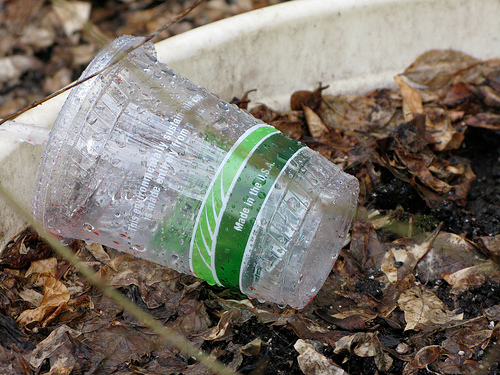
Admit it. Many of us still don’t separate our plastics from aluminum or our paper from the regular trash (unless our city mandates it of course). Recycling can be a bit of an inconvenience, and who’s really concerned about the environment outside of their own four walls?
News flash! All of us should be concerned, as our environment is a direct reflection of our health. Luckily, science has brought us a long way, finding new ways that hurt the earth a little less as manufacturers bring consumer goods to our front porches.
A hot topic in recent years has been on the detrimental environmental effects of plastics. From plastic bags that end up in landfills and our oceans, to the toys our children play with, the chemical health effects and damage to the environment are still debatable.
Years ago scientists discovered a solution to plastic: Bio-plastics. In 2010 an article featured in TIME magazine explained: “Bioplastics could be really good for the environment — the manufacturing process produces fewer greenhouse-gas emissions than that for petroleum-based plastics, and these biomaterials don’t contain an allegedly hormone-disrupting chemical, bisphenol A (BPA), that some regular plastics do.”
But the work doesn’t end here. Though bio-plastics are being marketed as the best new “alternative” to traditional plastics there are a few details about this miracle material that skeptics are unrelentingly concerned about.
The SurfRider Foundation’s Bill Hickman writes: “In some ways bioplastics are a step in the right direction, but in most ways they act just like regular disposable plastic. They generally require commercial compost facilities to break down and it’s likely that very little bioplastic makes it there. When recycled, if bioplastics are commingled with regular plastics they can potentially contaminate the whole batch. Some grocery stores tout that it’s ok to prepackage produce now because the packaging is compostable. Baloney!”
According to youth environmental leader and anti-plastics crusader gives us the short and sweet of it all stating that bio-plastics are made of genetically modified corn and are biodegradable only if they are sent to industrial composting places or heated at 140 degrees.
Not to rain on the parade or anyone’s efforts to be a little more green at home, there’s still a lot of work to be done and information to be shared. Don’t be fooled folks. What you see is certainly not what you get.
Have you purchased biodegradable plastics in an effort to limit our impact on the environment?






